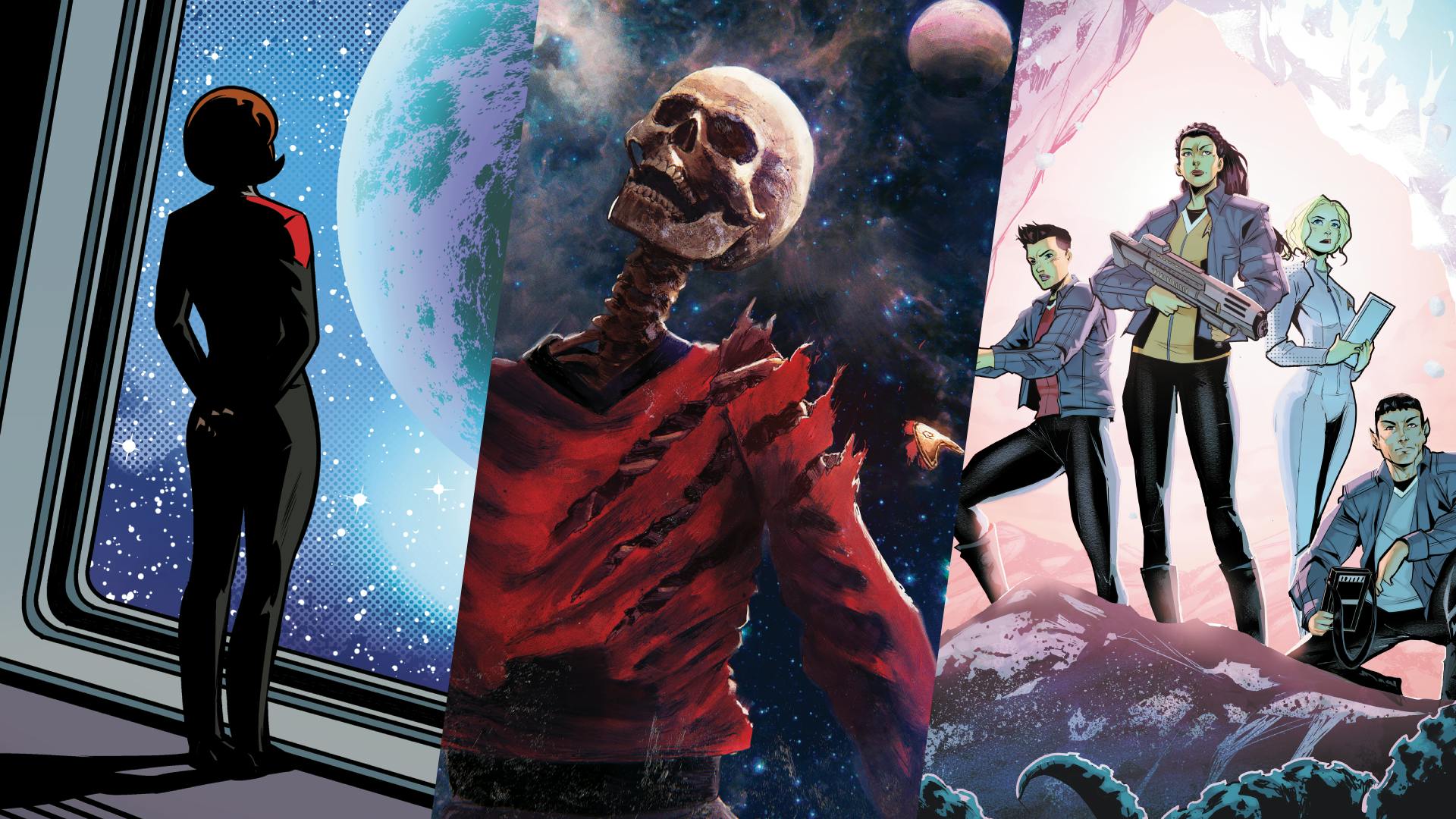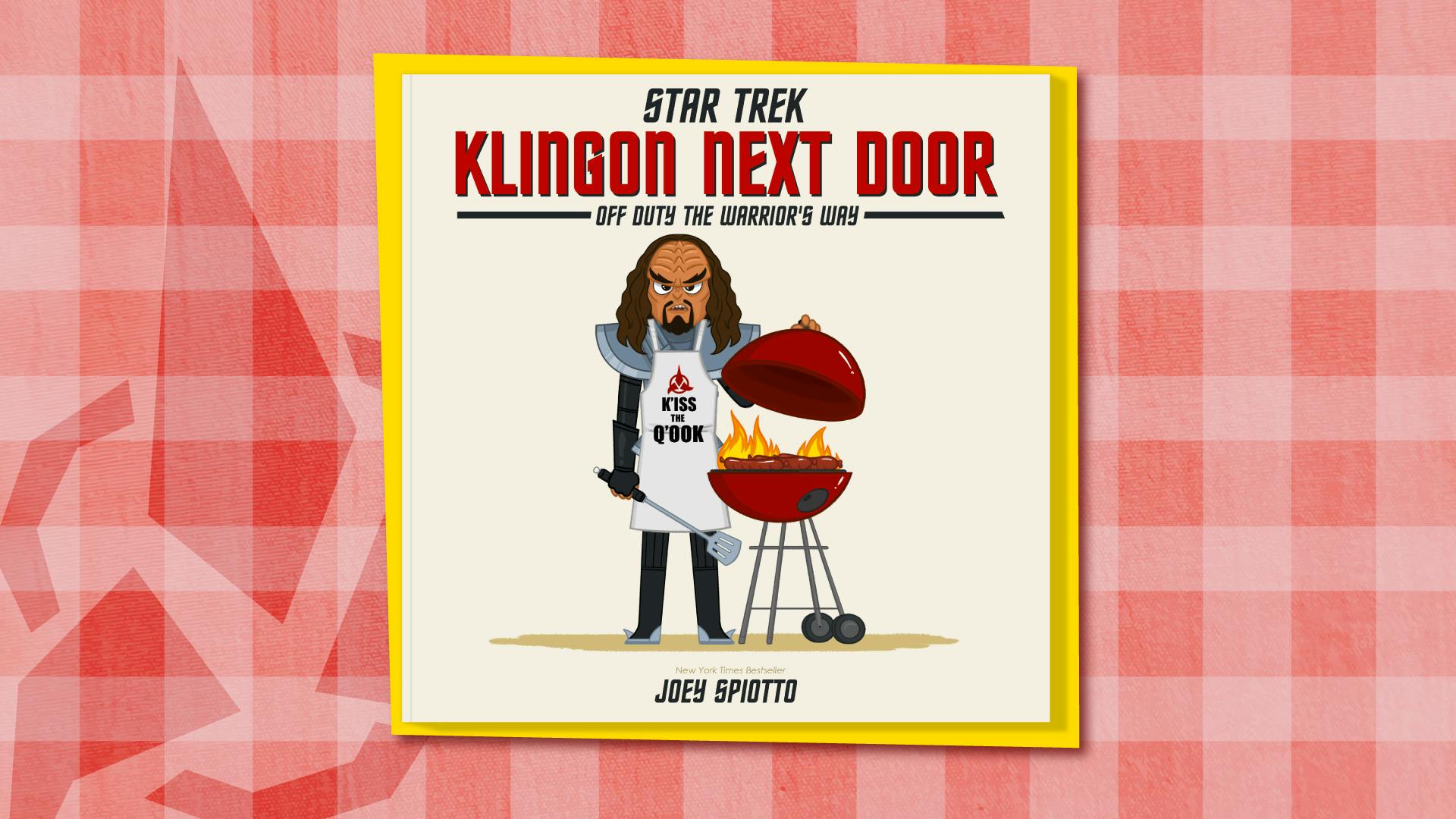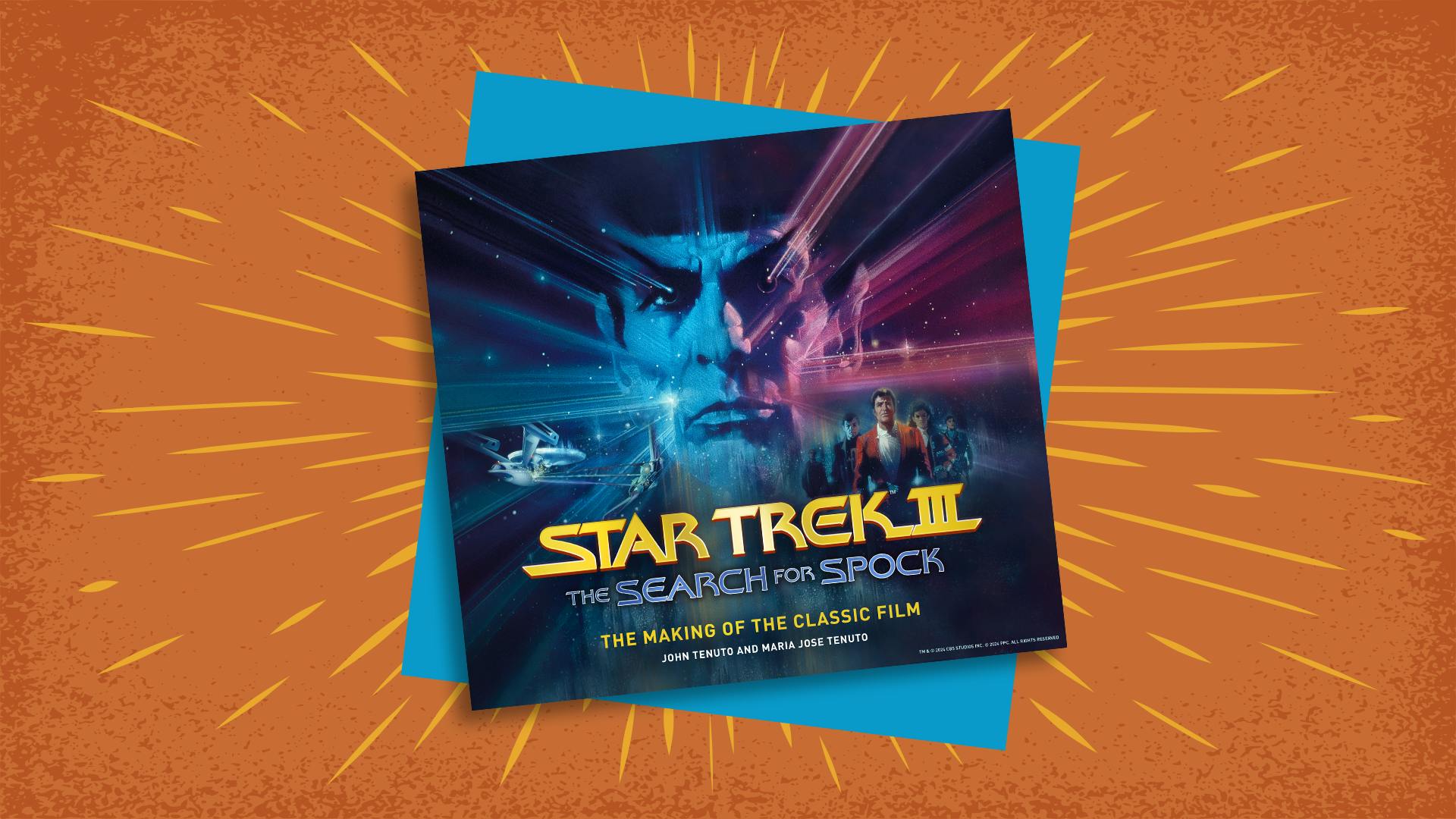Published Oct 8, 2019
The Story Behind the Story: Star Trek: The Next Generation – Collateral Damage
David Mack shares the surprising inspiration behind his newest Trek book.
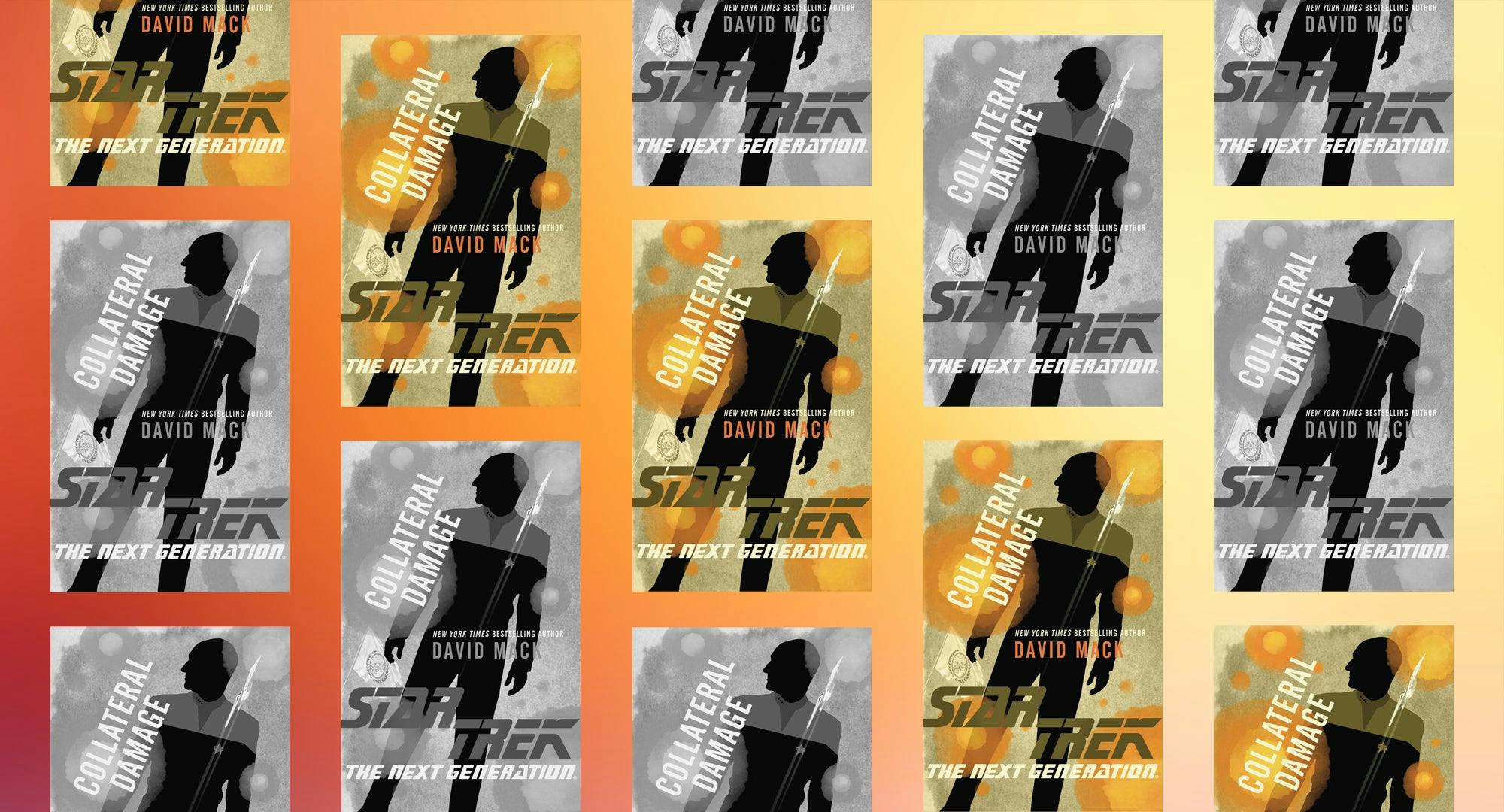
StarTrek.com
I wrote Collateral Damage because I had something to say.
The idea for a story can come from just about anywhere. In the case of Star Trek, many great tales have been drawn from issues and controversies transpiring in our real world at the time of their creation.
We saw this in many episodes of The Original Series, which used science fiction as a way to comment upon serious political and social conflicts of the late 1960s. Episodes such as season one’s “A Taste of Armageddon,” which shone a harsh light on the madness of nuclear war’s policy of mutually assured destruction, season two’s “A Private Little War,” which remarked upon superpowers’ use of smaller nations as proxy fighters in a cold war, or season three’s “Let That Be Your Last Battlefield,” which castigated racism for its callousness and stupidity, exemplify the practice.
This tradition continued in later incarnations of Star Trek, and it is a big part of what has helped the series remain meaningful to audiences worldwide for more than five decades.
That ethos has also been honored by Star Trek’s tie-in media, in particular the original novels published by Simon & Schuster.
Consequently, when I sat down to draft the story outline for what became my Star Trek: The Next Generation novel Collateral Damage, I drew part of my inspiration from the news.
Looming large at that time were reports of the damage the Category 5 hurricane Maria had inflicted on Puerto Rico — and the slothful, inept, bordering-on-criminally negligent response of the U.S. government to the loss of lives and infrastructure on the island, which is a sovereign territory of the United States and its people, American citizens.
That fiasco dragged on for months because of the slipshod manner in which the needs of the people of Puerto Rico were addressed by the U.S. federal government. The longer the debacle continued, the angrier I became. That was when I knew it was something about which I needed to write.
As soon as I started adapting real life into Star Trek fiction, I realized this story was larger than the Puerto Rico crisis. That situation led me to reflect on larger questions: What are the inherent obligations of a superpower to its international (or interstellar) neighbors in the aftermath of a catastrophe? And not just its own territories — what about those of its allies? Or those of its adversaries? What happens when a civilization that calls itself advanced and benevolent fails to practice what it preaches? If one talks the talk without walking the walk, does one really have any claim to moral superiority?
I summed up this train of thought in my novel’s epigraph: “Charity begins at home—but if it ends there, what good is it?”
My novel certainly doesn’t contain all the answers to all of the questions it raises, but I hope that it sparks at least a few new ideas in the minds of its readers, and that it leads them to embrace a spirit of charity more in line with the one Star Trek has shown us since the beginning:
To build a better universe, start with kindness.
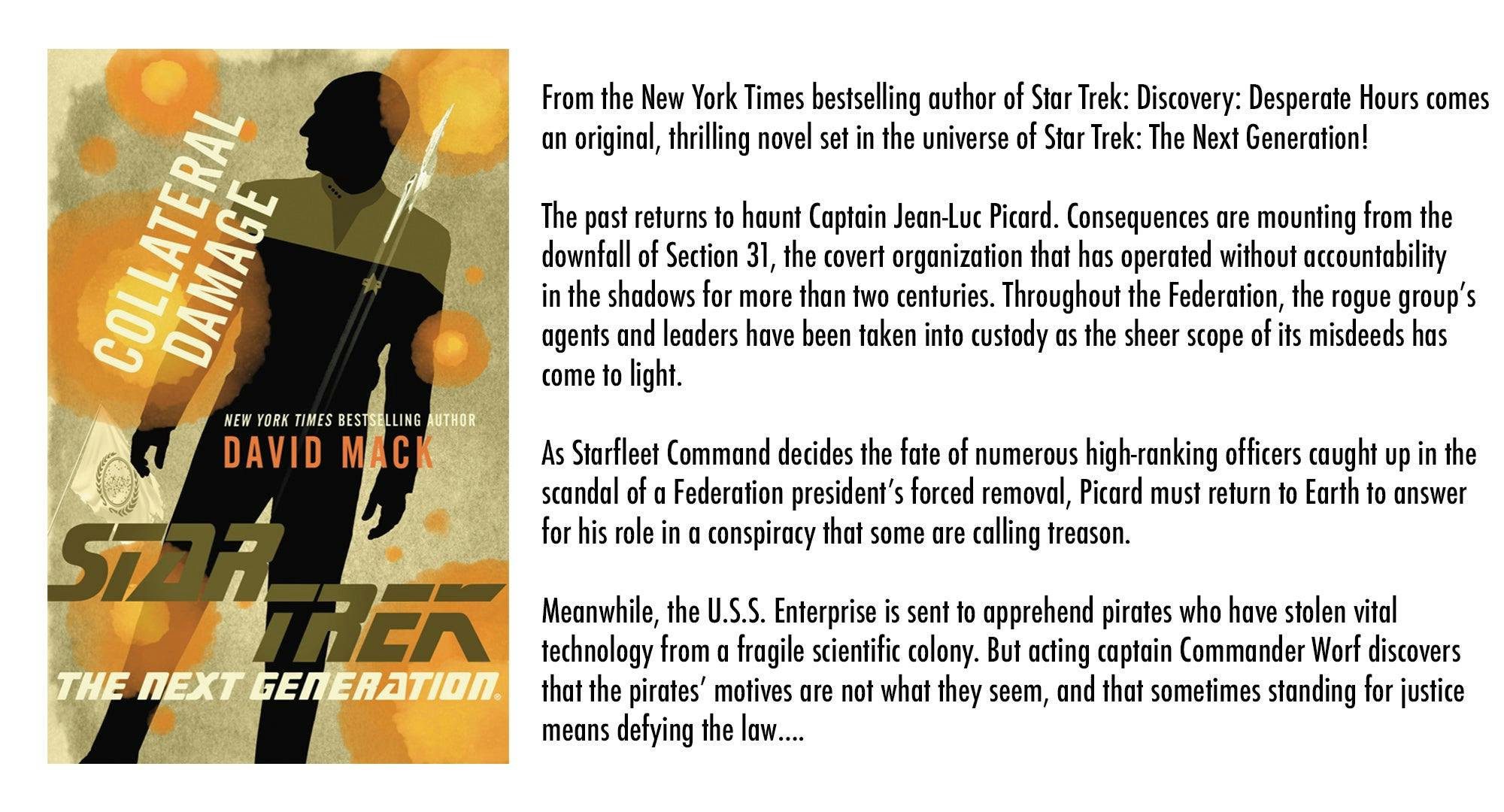
StarTrek.com | Simon & Schuster
Star Trek: The Next Generation – Collateral Damage is available today from Simon & Schuster in trade paperback, eBook, and digital audiobook from Audible, Google Play, and Apple Books.


